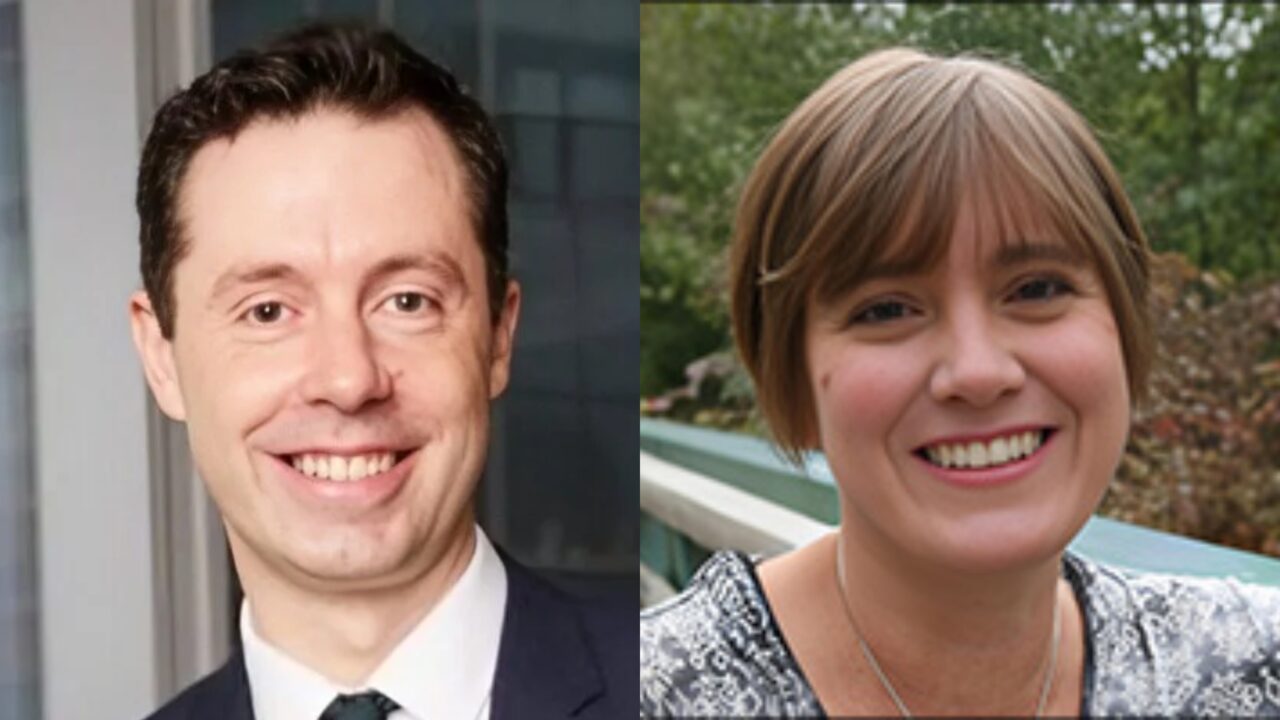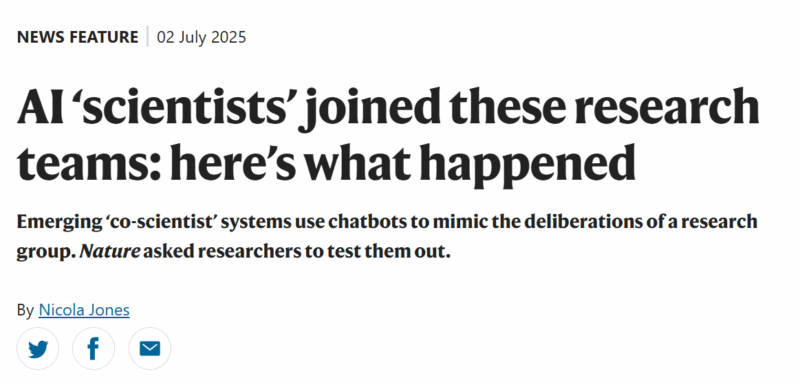
Olivier Elemento: Beyond the Abstract – The Next Evolution for AI Co-Scientists
Olivier Elemento, Director of Englander Institute for Precision Medicine, shared a post on LinkedIn:
“Beyond the Abstract: The Next Evolution for AI Co-Scientists
A recent feature by Nicola Jones in Nature explores the fascinating emergence of AI “co-scientist” systems, where teams of specialized AI agents collaborate to brainstorm hypotheses and design experiments. The article highlights several cases where researchers used these tools, such as Stanford’s Virtual Lab and Google’s Co-Scientist, to accelerate their work. For instance, one researcher was impressed when an AI system proposed promising drug candidates for liver fibrosis that his lab later validated. Another found it helpful for synthesizing knowledge for a grant application in minutes.
While the progress is exciting, I think the article also indirectly reveals where these systems need to evolve to become true scientific partners.
The current generation of co-scientists appears to excel at synthesizing information from published literature. However, a great deal of scientific discovery stems from the direct interpretation of complex, raw datasets—genomics, imaging, clinical data. The examples in the article feature AIs prompted with text and background papers, not datasets. The next step is for these systems to derive hypotheses from both primary data (public and private) and published literature (ideally not just abstracts but also full text and actual figures).
Human scientists build models to understand biological systems, often sketching them as diagrams to visualize pathways and relationships. This model-building is a cornerstone of hypothesis generation. The interactions described in the article are largely text-based, like a transcript of a meeting. I think for AI to truly augment our thinking, it must also learn to “think” visually and systemically, creating the kind of conceptual models that drive insight.
The ability to move from literature summary to primary data analysis and conceptual modeling will mark the next major leap for AI in science.”
Title: AI ‘scientists’ joined these research teams: here’s what happened
Author: Nicola Jones

More posts featuring Olivier Elemento on OncoDaily.
-
Challenging the Status Quo in Colorectal Cancer 2024
December 6-8, 2024
-
ESMO 2024 Congress
September 13-17, 2024
-
ASCO Annual Meeting
May 30 - June 4, 2024
-
Yvonne Award 2024
May 31, 2024
-
OncoThon 2024, Online
Feb. 15, 2024
-
Global Summit on War & Cancer 2023, Online
Dec. 14-16, 2023
